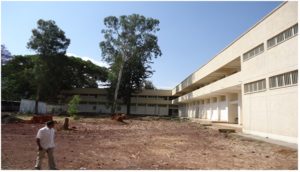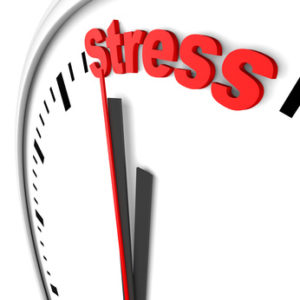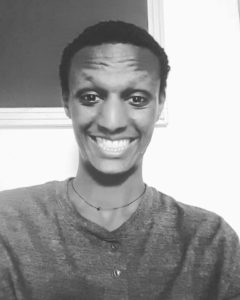How to Cope with the Stress and Final Struggle in Medical School – and to Enjoy the Excitement After it.
By Dr. Yohannes Mengistu (internship)
(Editor’s Note: Physician Family readers will recall our young Ethiopian friend Yohannes Mengistu from an article he wrote for the Spring 2016 issue of Physician Family: Challenges Facing a Foreign Medical Student Who Would Like to Train in the United States http://bluetoad.com/publication/?i=297297&ver=html5&p=20. He has recently completed medical school in Bahir Dar, Ethiopia and is embarking on his intern year. This piece reflects on the hard work required not only by medical students in Ethiopia and throughout the world, and how very important it is for them to have outlets to reduce their stress and the support of their families. We wish this earnest young man well and know he will be a marvelous physician whose patients will be lucky to have him take care of them.)

Tests and exams are the most challenging part of campus life, especially when it is in medical school where students will frequently encounter different types of examinations. One of the things which makes it special is that in medical school, exams are not only given as a written examination but also as oral and practical examinations in which students must face their instructors. Most of the time these are external examiners from other medical schools, with challenging questions from any area of study that the examiners desire to ask. The difficulty, stress and anxiety is far greater than a written exam.
In addition, the highly competitive curriculum, intense academic competition, excessive demands on coping abilities in physical, emotional, intellectual, financial and social terms and many more possible factors contribute to the high level of stress in medical school. When it comes to the final exam, in finishing medical school and to become a medical doctor, which is called a ‘qualification exam’ in Ethiopia, it is not hard to wonder how stressful, anxious, and difficult the environment will be for medical students.

Stress is known to modulate the activity of the autonomic nervous system and central nervous system in a way so as to cope up with the stress and to get adapted to it. And under optimal stress, a student often does bring out his or her best. However, extremes of stress can result in irritability, loss of sleep, loss of interest in food, considerable worry, headaches and stomach pain – all of which can be responsible for highly deteriorating performance and stress induced disorders which are not uncommon in medical school.
We all may at some time or other have heard of that a medical student who only studies a couple of hours for exams, seems not to be stressed and is happy looking, who scores good every time. We stand in awe of those who seem to breeze through without undue effort and seem to need very little in the way of studying to nail an exam. For the rest of medical students, especially during final exams, they shape their behaviors and develop ways to cope with all the stresses they face in ways which could be esoteric or less esoteric.
Many students need to talk to friends, particularly non-medical school friends, about their struggles in medical school to relieve the stress, to share their worries or find some time to go away from their environment, to forget for a moment. But there are also some students who rather prefer to keep themselves away from everybody, even a loved one, during exam times, preferring to walk a couple of miles alone, or to spend time somewhere silent and beautiful in order to relieve stress and to concentrate.

On top of all these, almost all medical students ultimately need family support. A single two-minute phone call from the family is the utmost in motivation and reduction of stress and anxiety. There are also other ways which medical students use to reduce stress or to displace themselves from the anxiety they face. Some will write poems, participate in organizations (including religious organizations) or associations, workout in the gym or some, like me, spend time drawing.
 (Artist: Yohannes Mengistu)
(Artist: Yohannes Mengistu)
 (Artist: Yohannes Mengistu)
(Artist: Yohannes Mengistu)
These are some of the ways medical students here in Ethiopia (and I imagine other places as well) prepare for and face the most challenging final examinations. It also helps to keep in mind that the struggle and amount of work to qualify allows us to become part of one of the respected professions in the world.
I believe that internal motivation is the most important thing medical students need in the journey to meet their dream. In addition, it helps to plan for and think about the post exam excitement and celebration to stay motivated. Once all of that is completed, the excitement that comes after all of this work is almost unexplainable. Aside from joy of the success and the celebration, having time without thinking about exams and sleeping or doing daily activities without exam stress is an extreme relief.
But the saddest thing is that not all medical students make it through, a few finding it necessary to have the stress of taking courses (and final examinations) over again. The consolation offered by classmates, other friends and family is helpful when this happens.
After being qualified, the excitement is so delightful and the most stimulating time for medical students, to realize the fruit of the long run and the hardship of the learning environment. Then, during the break given between the end of school and the beginning of internship, students try to make the best of it by planning for trips with family or friends, cheering, partying, and having fun, which is some small measure of relief for the stress they had previously encountered.

Finally, after coming back from break, students enjoy the satisfaction and thrill of the working environment on the ward and to finally be called “Doctor.”
Dr. Yohannes Mengistu recently completed his senior year at the Bahir Dar University College of Medicine and Health Science in northwestern Ethiopia. He is currently serving his intern year, after which he will begin residency. He has worked on the Standing Committee of Professional Exchange and serves as Vice President for External Affairs for the Ethiopian Medical Students Association-Bahir Dar, a branch of the International Federation of Medical Students Association (IFMSA). You can contact him at guttinma@yahoo.com.


cool one Doc…it’s rare to find such articles in our context
Thank you Simon
excellent and motivating, I was on the verge of given up to the stress